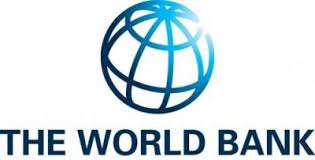
Nigeria : World Bank advance $4b grants to states – NGF boss
Chairman, Nigeria Governors Forum (NGF) and governor of Ekiti State, Dr. Kayode Fayemi, disclosed yesterday that states of the federation are enjoying various grants and soft loans worth about $4billion from the World Bank.
According to Fayemi, the grants among others, are geared to enhancing the abilities of the States to meet the aspirations of their people,. Speaking yesterday in Abuja during a meeting of the state governors with the World Bank represented by the Country Director, Rachid Benmessaoud and his team,
Fayemi who noted that the funds provided to the states come with long moratorium and low interest rates to offset it, said, “The bank is spending somewhere in the region of $4 billion in states and some of our states are benefiting from a range of grants. Even the loans that we benefit from on the basis of the bank’s investments in our states, these are with long term moratorium and with low interest over a long period of time to offset those loan portfolios.”
Fayemi stressed that it was important for the states to work with the World Bank “to look at ways of engaging the bank’s subsisting portfolio and review things that we are doing right, things we need to improve on and how we need to accelerate deployment of resources that is available within the portfolio for states.
According to him, it was also important for the states to work with the bank in terms of the lending operations, advisory activities, and concrete action in the states, adding, “The NGF has proposed a range of suggestions which the bank has taken up and will be implementing in other to better the relationship we have built over the years. “There is a question of course of also not having enough resources and the need to expand the lending portfolio from what it is now both to the federal government and the sub-national entity. “It is absolutely important that that vehicle is not closed because if we can borrow from the World Bank at one percent interest, it is always going to be better for us than for us to borrowing at 25 percent commercial lending rate. That is a no brainer, we will all agree with that.” While hailing the efforts of the World Bank in the states, Fayemi who noted that the country was just emerging from an election, said that the need for continuity in government’s programme as he noted that governance was a continuum.
Fayemi said, “I don’t know of many developments partners that have programmes in 36 states.
The World Bank does and all of our governors were present in this meeting and that makes the statement about the importance attached to this partnership with the World Bank and we had extensive discussion on how to improve on existing relationship and how to build on those projects that have transitioned from one governor to the other. “Because, periods of transition can be challenging period and it is absolutely important that we treat government as a continuum and address whatever gaps that there are without throwing the baby away with the bath water.
In his remarks, the World Bank country’s director, Benmessaoud who noted that the bank has been particularly engaged with the NGF as the important platform for engaging with the sub-national governments beside engagements at the state level, however explained that the World Bank mission was to fight poverty and build prosperity, adding, “We know that the number of poor people have increased in Nigeria in terms of number though the trend is decreasing. “So, fighting poverty in Nigeria and Africa is going to be absolutely critical for reducing poverty globally. So, therefore, our priorities which we have engaged with the governors will be around investing in human capital, investing in people to have access to basic education, health services, social protection. “But we do recognize the development challenges also require investing in infrastructure and filling the large infrastructure gaps.
“But with that, we want to make sure that those infrastructural gaps are filled by bringing more of the private sector so that will enable the creation of the physical space for governors to invest in human capital including financing from development partners like the world bank but most importantly to increase the domestic revenue mobilization for providing primary spending on the social sector. So, therefore the World Bank has the large part of its engagement at the state level.”

